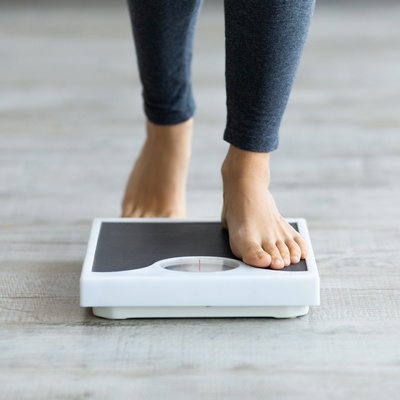Articles / Healthy Living
Sep 5, 2024
12K Views
Biohacking for Women: Unlocking the Keys to Biochemical Individuality
By The Food Matters Team
What’s the deal with biohacking?
This idea has emerged as a cutting-edge approach to optimizing physical and mental well-being. For women, however, effective biohacking must acknowledge and embrace the concept of biochemical individuality. Unlike men, women experience unique physiological processes that influence how their bodies respond to various biohacking strategies. To truly unlock the benefits of biohacking, women must tailor their approach to fit their individual biochemical makeup.
Biochemical individuality refers to the concept that each person's body is biochemically unique. This individuality is influenced by a myriad of factors, including genetics, stress levels, climate, location, life stage, epigenetics, hormones, gut microbiome, lifestyle, environmental exposures, and so much more. For women, hormonal fluctuations across the four phases of the menstrual cycle, pregnancy, and menopause further underscore the need for a personalized approach to biohacking.
The one-size-fits-all approach that often dominates wellness trends fails to consider the intricate differences between individuals. What works for one woman may not work—or may even be detrimental—for another. Therefore, the first step in biohacking is to understand and respect your own biochemical individuality.
Here are some considerations when it comes to biohacking for women keeping biochemical individuality in mind…
Hormonal health and biohacking
Women’s hormones are dynamic, fluctuating across different life stages and even within the span of a single month. These fluctuations can significantly impact how women respond to various biohacks. For instance, fasting has become a popular biohacking tool, but for some women, particularly those with chronic stress, adrenal fatigue or thyroid issues, it can exacerbate hormonal imbalances.
To optimize hormonal health, women should consider biohacks that align with their hormonal cycles. For example, focusing on nutrient-rich diets, stress management techniques, and gentle exercise during the luteal phase can support progesterone production and ease PMS symptoms. Conversely, during the follicular phase, women may benefit from more intense exercise and intermittent fasting, as the body is better equipped to handle these stressors.
Genetic testing and nutrigenomics
Advances in genetic testing have opened new doors for personalized biohacking. By analyzing your DNA, you can gain insights into how your body metabolizes nutrients, detoxifies, and responds to stress. For instance, some women may have a genetic predisposition to vitamin D deficiency, while others might be more prone to oxidative stress. MTHFR is also a very common gene mutation that affects the way we can process folate (synthetically folic acid) - this can be key information for women’s cycle concerns, and especially in pregnancy.
Nutrigenomics, the study of how food interacts with genes, can further refine your biohacking strategy. By tailoring your diet to your genetic profile, you can enhance your body’s ability to function optimally. This might involve increasing your intake of certain vitamins and minerals, avoiding specific foods that trigger inflammation, or incorporating targeted supplements.
Gut health: the foundation of biohacking
The gut is often referred to as the “second brain,” and for good reason. A healthy gut microbiome is crucial for overall well-being, influencing everything from immune function to mental health. Women, in particular, may experience gut issues related to hormonal fluctuations, such as bloating and digestive discomfort during menstruation.
Biohacking your gut health begins with understanding your unique microbiome. This can be achieved through stool testing, which provides insights into the diversity and balance of gut bacteria. From there, personalized dietary and lifestyle interventions—such as probiotics, prebiotics, a diversity of fiber, antioxidants, and fermented foods—can help restore gut health and support overall biochemical balance.
Stress management
Women are more susceptible to the effects of chronic stress, which can wreak havoc on hormonal balance, immune function, and mental health. Therefore, managing stress is a critical component of any biohacking strategy for women. Techniques such as meditation, yoga, and breathwork, can be highly effective in modulating the stress response.
Supplements like L theanine, magnesium, omega 3s, B vitamins and others can be helpful. Additionally, adaptogenic herbs like ashwagandha, rhodiola, and holy basil can help women better adapt to stress. However, it’s important to select adaptogens based on your individual needs and health conditions. For example, while ashwagandha is generally well-tolerated, it may not be suitable for women with hyperthyroidism.
Tracking & adjusting your biohacks
Biohacking is not a set-it-and-forget-it approach. To achieve the best results, it’s essential to track your progress and make adjustments as needed. Wearable devices, hormone tracking apps, and regular blood tests can provide valuable data on how your body is responding to different biohacks.
For example, if you’re experimenting with intermittent fasting, you might track your energy levels, sleep quality, and menstrual cycle regularity to determine whether it’s benefiting your body. Similarly, if you’re trying new supplements, it’s important to monitor how they affect your mood, digestion, and overall well-being.
Navigating life stages with biohacking
As women transition through different life stages—puberty, reproductive years, perimenopause, and menopause—their biohacking needs will change. For example, during perimenopause, women may need to focus on biohacks that support hormone balance, such as phytoestrogens, stress reduction techniques, and bone health support.
In contrast, postmenopausal women might prioritize biohacks that address metabolic health, cognitive function, and cardiovascular wellness. By staying attuned to these changes and adjusting your biohacking strategies accordingly, you can maintain optimal health and vitality throughout your life.
Biohacking offers women the opportunity to take control of their health and well-being in a highly personalized way. By recognizing and embracing biochemical individuality, women can tailor their biohacking practices to align with their unique needs, enhancing their vitality, balance, and resilience. The key to successful biohacking lies in listening to your body, making informed choices, and continually refining your approach based on your evolving biochemical landscape.
In the end, biohacking is not about following trends or adopting the latest wellness fads. It’s about becoming the expert of your own body and creating a personalized wellness journey that supports your unique biochemical individuality. When approached with this mindset, biohacking has the potential to transform not just your health, but your entire quality of life.
If you’re interested in learning more about biohacking for women, keep your eyes on your inbox in the coming weeks as we announce something exciting happening really soon!













